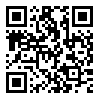year 10, Issue 38 (5-2011)
J. Med. Plants 2011, 10(38): 142-147 |
Back to browse issues page
Download citation:
BibTeX | RIS | EndNote | Medlars | ProCite | Reference Manager | RefWorks
Send citation to:



BibTeX | RIS | EndNote | Medlars | ProCite | Reference Manager | RefWorks
Send citation to:
Azadmehr A, Hajiaghaee R, Rezazadeh S, Afshari A, Kiani amin M, Baradaran B et al . Evaluation of Lavandula officinalis Extract on Lymphocyte Proliferation and Tumor Necrosis Factor-alpha Production. J. Med. Plants 2011; 10 (38) :142-147
URL: http://jmp.ir/article-1-221-en.html
URL: http://jmp.ir/article-1-221-en.html
A Azadmehr1 
 , R Hajiaghaee *2
, R Hajiaghaee *2 

 , Sh Rezazadeh3
, Sh Rezazadeh3 

 , A Afshari4
, A Afshari4 
 , M Kiani amin4
, M Kiani amin4 
 , B Baradaran5
, B Baradaran5 
 , P Ebrahimi1
, P Ebrahimi1 


 , R Hajiaghaee *2
, R Hajiaghaee *2 

 , Sh Rezazadeh3
, Sh Rezazadeh3 

 , A Afshari4
, A Afshari4 
 , M Kiani amin4
, M Kiani amin4 
 , B Baradaran5
, B Baradaran5 
 , P Ebrahimi1
, P Ebrahimi1 

1- Young Researchers Club, Tehran North Branch, Islamic Azad University
2- Department of Pharmacognosy and Pharmacy, Institute of Medicinal Plants, ACECR ,rhajiaghaee@yahoo.com
3- Department of Pharmacognosy and Pharmacy, Institute of Medicinal Plants, ACECR
4- Department of Immunology, Faculty of Medicine, Qazvin University of Medical Sciences
5- Department of Immunology, Faculty of Medicine, Tabriz University of Medical Sciences
2- Department of Pharmacognosy and Pharmacy, Institute of Medicinal Plants, ACECR ,
3- Department of Pharmacognosy and Pharmacy, Institute of Medicinal Plants, ACECR
4- Department of Immunology, Faculty of Medicine, Qazvin University of Medical Sciences
5- Department of Immunology, Faculty of Medicine, Tabriz University of Medical Sciences
Abstract: (9741 Views)
Background: Studies have demonstrated that plant extracts have various biological effects including immunomodulatory effect. Objective: In the present study, the immunomodulatory effects of Lavandula officinalis on lymphocyte proliferation and tumor necrosis factor alpha cytokine production were investigated. Methods: [3H] - thymidine incorporation assay on stimulation of the peripheral lymphocytes with PHA and determination of tumor necrosis factor alpha production was assayed, using LISA method. Results: The herbal extract in a concentration of 50 g/ml and lesser, in the presence of mitogen increased peripheral blood lymphocytes proliferation. However, there was not significant effect in concentrations more than 50 μg/ml. Also, the extract in the concentration of higher than 50 g/ml suppressed the production of tumor necrosis factor alpha in the exposed cells. Conclusion: The extract showed immunomodulatory effect by increasing of lymphocyte proliferation in a concentration of 50 g/ml and lesser. Also, decreasing in tumor necrosis factor alpha in the concentration of more than 50 g/ml was observed. Further studies, should focus on identifying the immunomodulatory mediator of this herbal extract.
Type of Study: Research |
Subject:
Pharmacology & Toxicology
Received: 2010/10/12 | Accepted: 2011/01/12 | Published: 2011/06/20
Received: 2010/10/12 | Accepted: 2011/01/12 | Published: 2011/06/20
Send email to the article author
| Rights and permissions | |
 |
This work is licensed under a Creative Commons Attribution-NonCommercial 4.0 International License. |





